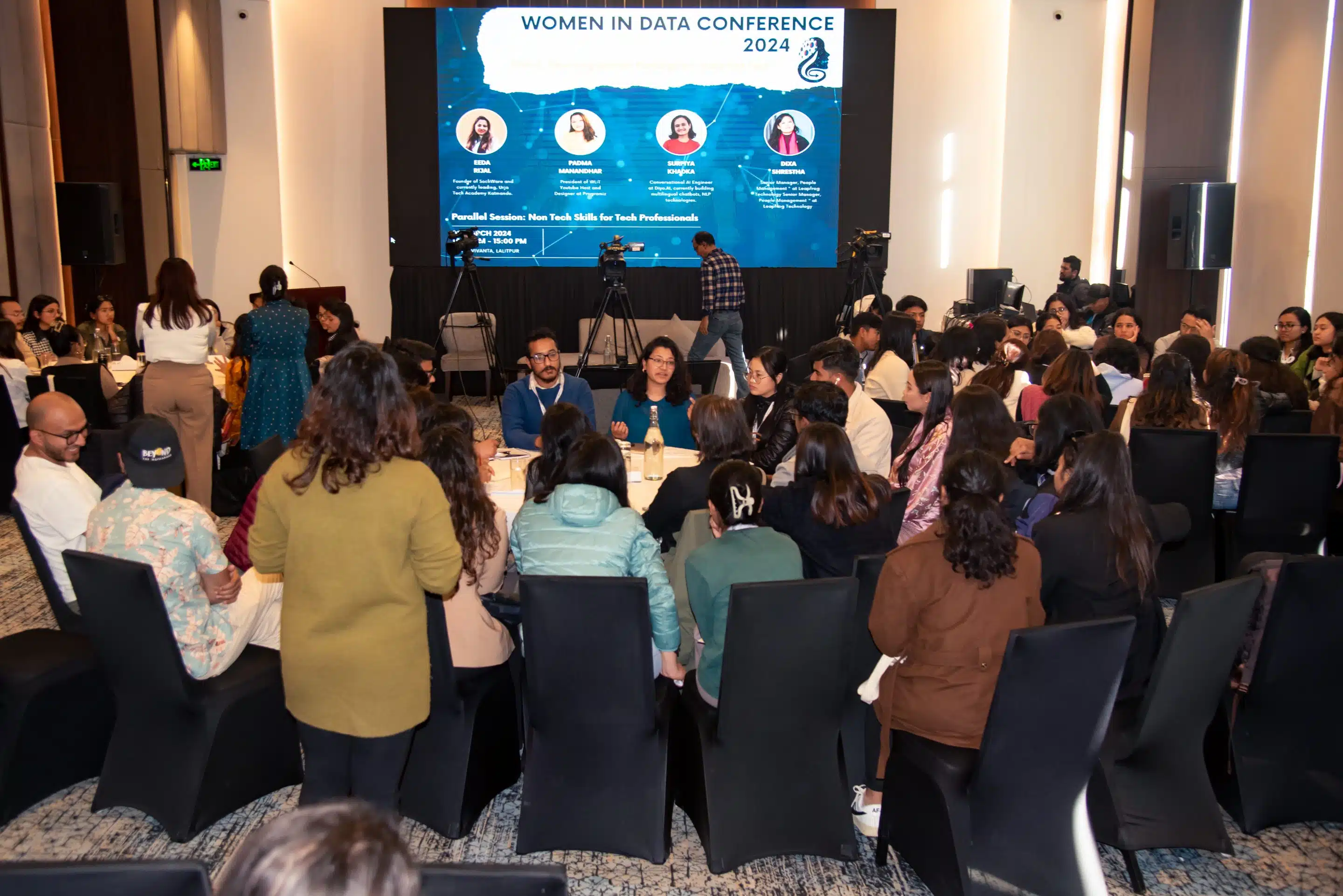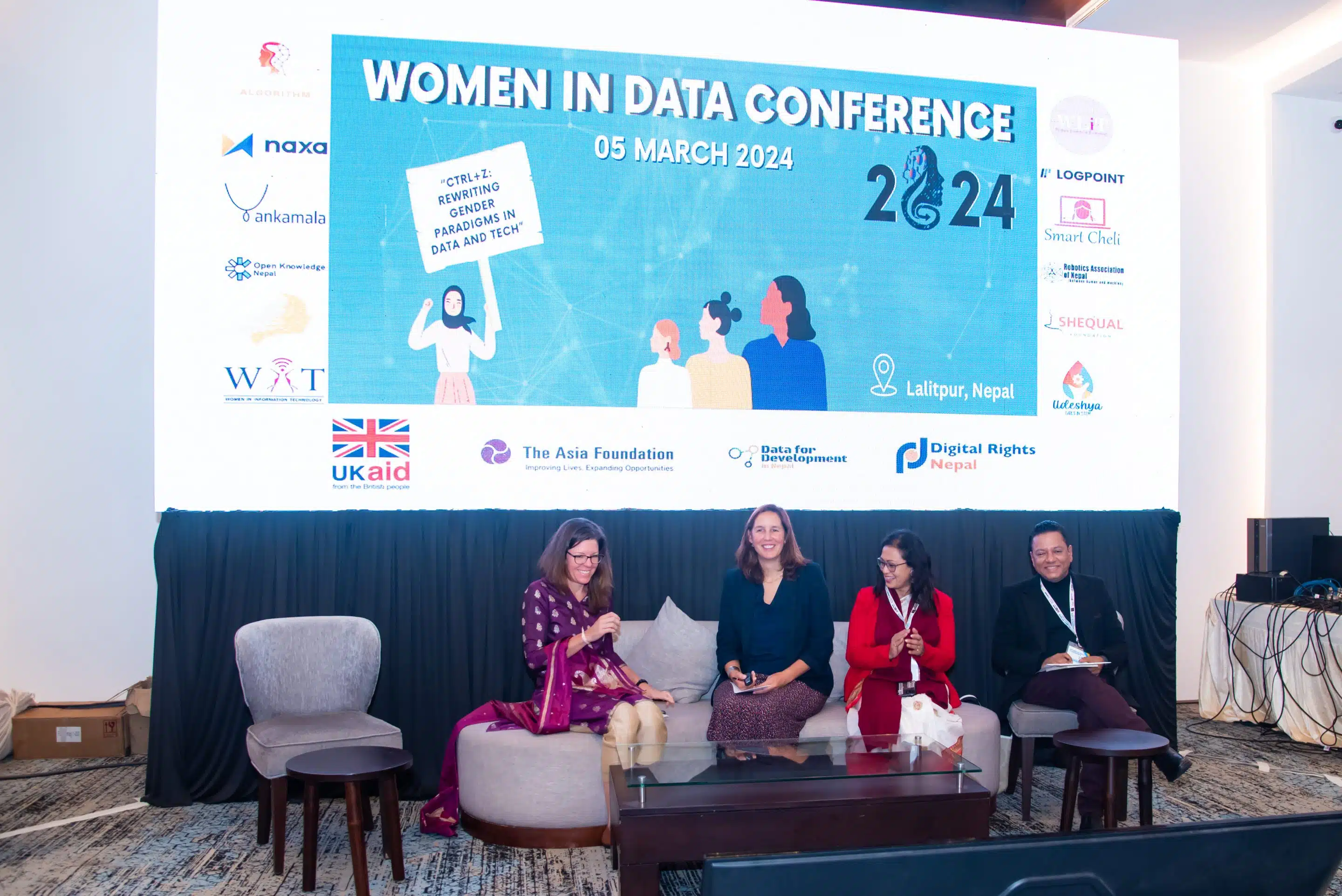The Women in Data (WiD) Steering Committee, comprised of 12 Nepali organizations with years of study and experience, advocates for fair opportunities for women in data and technology and aims to create a more inclusive industry. The Women in Data Conference is a recurring event in Nepal, held annually to address pertinent issues surrounding gender and technology. This year’s theme, “Ctrl+Z: Rewriting Gender Paradigms and Technology,” focused on tackling gender-based discrimination and inequality by bringing women from diverse backgrounds together to share their experiences in the field and discuss strategies for overcoming challenges.

Two significant presentations addressed Nepal’s gender diversity in technology, focusing on the role of conferences in reducing data and technology inequities. A presentation by Nhasala Joshi underscored the importance of communities and networks in finding mentors and developing skills essential for career progression. The presentation also revealed that most women find mentors in college or the early stages of their employment and that opportunities for mentorship decrease as one advances in life.
AI engineer Supriya Khadka from Diyo AI examined possible threats to the gender gap in the industry in her keynote, saying, “…we know the issue lies in the bias for data collection, in the biases while data labeling” while commenting about the imbalance of gender in the field of technology and data in Nepal.
The panel discussions focused on the historical underrepresentation of women in STEM fields and how the growing popularity of Artificial intelligence exacerbates the issue. The discussions also spotlighted the intersectionality in fostering inclusion for women in the field. Participants also discussed how the government, business community, and civil society are advancing women in data and technology.
Meghan Nalbo, our country representative in Nepal, highlighted the need to address gender inequalities in the workplace, schools, and other settings. Former data governance director at The Asia Foundation, Sajana Maharjan Amatya, emphasized the importance of men supporting women’s voices and making room for them in their sphere of influence. The value of collaborative data efforts in aiding the successes and accomplishments of women was also a topic of discussion. Drawing on her own experience from her early career, Pramila Devi Bajracharya, secretary of the Ministry of Education, Science, and Technology, addressed the ministry’s policies and actions to advance women in this field.

The WiD organization plans to expand its advocacy efforts beyond Kathmandu by organizing further satellite events. These events will focus on various topics, including climate change, data skills, data-related careers for young women, walk-in interviews with students, and teacher seminars at public schools in rural Nepal.
source : asiafoundation
